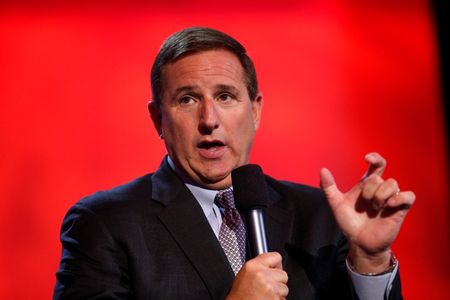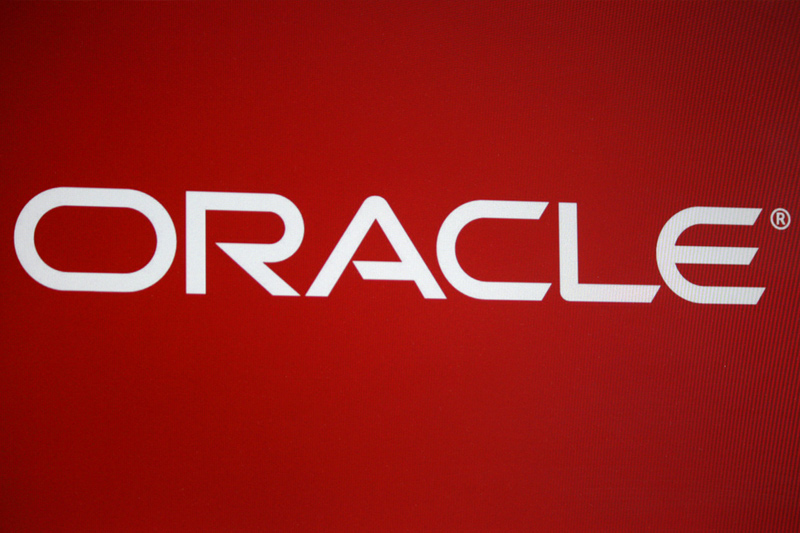By Sarah McBride SAN FRANCISCO (Reuters) - By promoting its two presidents to serve as co-chief executives instead of founder and CEO Larry Ellison, database-and-software behemoth Oracle (N:ORCL) is setting itself a course that has confounded other big companies.
The move seemingly marries the product oversight of Mark Hurd, former chief executive of Hewlett Packard, with the legal and financial expertise of Safra Catz, a 15-year Oracle veteran.
With Ellison remaining executive chairman and in a position to call the final shots, the company may be able to avoid some of the challenges that have mired other co-CEOs, who often end up in an unhappy "two's-a-crowd" situation, analysts say.
At Martha Stewart Living Omnimedia, for example, Wenda Harris Millard was supposed to oversee media, while co-CEO Robin Marino held responsibility for marketing. That lasted just 10 months, with Millard quitting in early 2009 after frequent clashes with Marino and company founder Stewart.
At Citigroup, a co-CEO arrangement between John Reed and Sandy Weill, two strong personalities who publicly jousted, fell apart when Reed left in 2000.
"Co-CEO structures are typically not ideal," said Bill Kreher, an analyst at Edward Jones, who says most companies need the decisiveness that a single strong-willed leader offers.
But at Oracle, because the duo has already worked together for years, "we don't see the day-to-day changing," Kreher said.
Catz, trained in finance and law, was a Wall Street banker from 1986 until she joined Oracle in 1999 and has been a central figure in Oracle's many acquisitions. Sales-oriented Hurd spent 25 years at computer and ATM pioneer NCR Corp before joining Hewlett-Packard, where he was CEO from 2005 until 2010.
Still, many analysts believe a single CEO will eventually replace Ellison, be it Catz, Hurd, or perhaps another executive such as Oracle software head Thomas Kurian.
Reverting to a single CEO would bring Oracle in line with other software companies that have tried the dual track but subsequently abandoned it.
Enterprise-software company Workday said in May that co-founder and co-CEO David Duffield would step down as co-CEO, leaving the role to Aneel Bhusri. Also in May, German software giant SAP, a key competitor of Oracle, ended a co-CEO arrangement when Jim Hagemann Snabe stepped down.
"It has to be executed right, and you have to have the right working relationship to make it work," Derrick Wood, an analyst at Susquehanna, said of the dual-CEO track.
Cases where it succeeds often include a founder who acts as the visionary alongside a co-CEO who serves as the operations head, such as at retailer Whole Foods Market and fast-food restaurant Chipotle Mexican Grill. That almost fits the situation at Oracle, except operations will be run by two people.
Having three, including Ellison, at the top makes Oracle analogous to Korea's Samsung Electronics. Last year, Samsung gave consumer-electronics head Yoon Boo-Keun and mobile chief J.K. Shiin co-CEO titles, joining existing CEO Kwon Oh-hyun.
The co-CEO arrangement is more common in Europe, notes Harvard Business School professor emeritus Joseph Bower. Deutsche Bank and its co-CEOs Anshu Jain and Juergen Fitschen are a prominent example.
"The downside in terms of confusion is obvious," said Bower. But "if they work well together, essentially you've vastly expanded the bandwidth of the CEO."

(Reporting by Sarah McBride; Editing by Dan Grebler)
